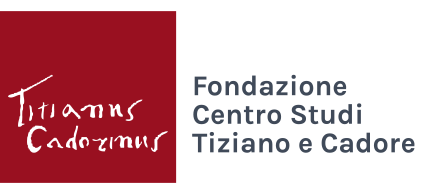Titian: Sources and Documents
Published in 2023 by Paul Holberton Publishing
6 vols, 247 x 177 mm
For information and to order in Italy contact
centrostudi@tizianovecellio.it
Hugely ambitious, Titian: Sources and Documents includes all known documents about Titian and his work dating from his lifetime, and all known references to him in contemporary publications. The relevant section of each text is transcribed in full, preceded by a short summary in English, with extensive annotation and, where necessary, a commentary. The intention of this incredible work of scholarship is to provide a comprehensive survey of the surviving historical evidence about Titian and his career. Titian was one of the most famous, successful and long-lived of Renaissance painters. Much of his output was for rulers or institutions whose archives have been in large part preserved, and many of his family papers have also survived. In addition, he was mentioned in more than a hundred and sixty different publications in his lifetime. Although hundreds of the documents about him and his work have been published, usually in specialised publications based on material in a single archive, there have only been two attempts to provide an overview of the entire body of documents and early published references to him, the first by Crowe and Cavalcaselle in 1877, the second by Adolfo Venturi in 1928. These publications were necessarily selective and included transcriptions of only a small part of the material which was used. The collection, amounting to over two thousand nine hundred items, includes not only texts specifically about Titian himself, but also those concerning his siblings and children, his principal assistants and the other members of the Vecellio family already active as painters before his death, as well as inscriptions on paintings and prints. In addition to texts dating from Titian’s lifetime, the collection includes all biographical material published before 1700 and all other texts that could realistically be thought to reflect first- or second-hand anecdotal information about him. The particular strengths and limitations of the principal early printed sources and the circumstances in which they were produced are discussed in a substantial introduction, which also includes an overview of the main archival collections consulted in the preparation of the book. Most of these are in Italy, but others are in Spain, Austria and Germany. New transcriptions are provided for the great majority of the documents that have previously been published, and many hitherto unknown documents have been included. Consideration is given also to documents now known only via secondary sources, and to fake documents, of which a significant number were produced in the past two centuries.

